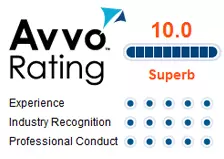Sadly, Michigan’s State Bar does not require ANY continuing education for licensed lawyers. The reason I say “sadly” is because many areas of practice require extensive advanced training. Once such area is drunk driving defense. What I mean by this is that competent representation in a drunk driving case requires a high level of expertise.
The reason I believe this to be true is that drunk driving cases are incredibly challenging. Not only are the drunk driving laws complicated but the science behind breath and blood testing is even more formidable. Consequently, in order to ethically represent a client accused of drunk driving a lawyer must possess a huge volume of knowledge, and such knowledge can only be gained through years of advanced training.
So, if the State Bar does not require continuing education, what then is a drunk driving lawyers ethical duty to become educated about breath testing, blood testing or field sobriety testing?
Michigan’s rules of professional ethics do rather broadly address this issue, and indicate as follows:
Rule 1.1 Competence.
A lawyer shall provide competent representation to a client. A lawyer shall not:
(a) handle a legal matter which the lawyer knows or should know that the lawyer is not competent to handle, without associating with a lawyer who is competent to handle it;
(b) handle a legal matter without preparation adequate in the circumstances; or
(c) neglect a legal matter entrusted to the lawyer.
COMMENT:
Legal Knowledge and Skill
In determining whether a lawyer is able to provide competent representation in a particular matter, relevant factors include the relative complexity and specialized nature of the matter, the lawyer’s general experience, the lawyer’s training and experience in the field in question, the preparation and study the lawyer is able to give the matter, and whether it is feasible to refer the matter to, or associate or consult with, a lawyer of established competence in the field in question. In many instances, the required proficiency is that of a general practitioner. Expertise in a particular field of law may be required in some circumstances.
Maintaining Competence
To maintain the requisite knowledge and skill, a lawyer should engage in continuing study and education. If a system of peer review has been established, the lawyer should consider making use of it in appropriate circumstances.
Clearly then Michigan’s rules of profession conduct strongly suggest but do not actually require that a person holding themselves out as a drunk driving defense lawyer have advanced training. In this regard, it is my opinion that Michigan’s rules do not properly protect the public. This opinion is shared by the top DUI defense lawyers around the country.
For example, William (Bubba) Head is widely known around the country as one of the nation’s greatest drunk driving defense lawyers. In his article The Ten Commandments For Ethically And Effectively Representing Clients at Trial, DWI Journal, Vol. 21, No. 3 (March 2006) he wrote:
“Thou shall not undertake defending DUI-DWI cases without comprehensive training in field test procedures and the forensic tests used against your client.”
One example of how I attempt to stay on top of the complex science involved in drunk driving cases is the fact that I recently successfully passed a proficiency based Forensic Blood and Urine seminar at Georgia’s Emory University in November 2008. This seminar consisted of more than 46 hours of scientific and legal training and included a laboratory tour where various gas chromatography instruments where inspected and their use demonstrated and explained. World renowned Toxicologist Dr. A.W. Jones was on faculty for this seminar.

Barone with Dr. A.W. Jones November 2008
I was also on faculty and lectured on various forensic legal issues. Here is a photograph of the two of us together.
At the conclusion of the seminar students were required to take and pass a comprehensive written examination. No other Michigan lawyers attended or taught at this Forensic Blood and Urine Seminar.
When looking for a lawyer to represent you in a drunk driving case you will be well served to check on their level and commitment to advanced education. Keep in mind that either attending or teaching qualifies as advanced training.
Please contact us today if you’d like to learn how we can apply this knowledge to the defense of your pending drunk driving case.
Related posts:




{ 2 trackbacks }